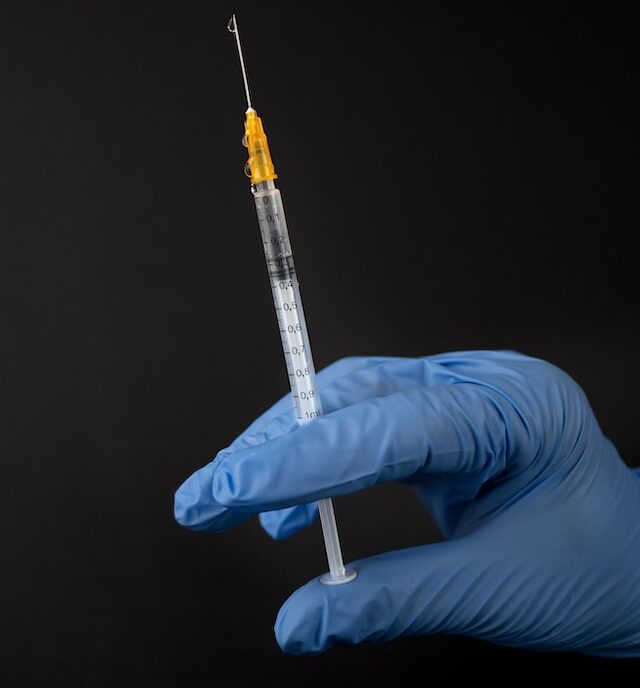The first shipment of Jynneos mpox vaccines arrived in the Democratic Republic of Congo (DRC) on Sept. 5, according to vaccine maker Bavarian Nordic. The shipment arrives three weeks after the World Health Organization (WHO) declared an international emergency over the outbreak centered in that country.
Over the coming days, a total of more than 250,000 doses of the vaccine are expected in the DRC, home to roughly 95% of the reported mpox cases. The vaccines have been donated by the European Commission’s Health Emergency Preparedness and Response Authority (HERA), the U.S. Government, and Bavarian Nordic, a member of the Biotechnology Innovation Organization (BIO).
“Mpox cases are increasing at an alarming rate in the DRC, putting even more pressure on a highly burdened healthcare system, where aid is desperately needed,” says Paul Chaplin, President and CEO of Bavarian Nordic. “Time is of the essence, and we are pleased that the way has now been paved for our mpox vaccines to reach the people in the DRC who are most in need. We will continue our collaborative efforts with both international partners and local authorities to further broaden access to our vaccine in the region.”
More help for the mpox emergency could be coming soon, as Moderna announced human trials of their mRNA vaccine candidate have begun following a successful animal trial.
Mpox designated an international emergency
The WHO declared an international emergency on Aug. 14 as a highly virulent strain of mpox, clade Ib, spread from the DRC.
“Since January 2023, the Democratic Republic of the Congo (DRC) has reported more than 27,000 suspected mpox cases and more than 1,300 deaths,” according to the Centers for Disease Control and Prevention (CDC).
“Clade I mpox occurs regularly, or is endemic, in DRC,” explains the CDC. “The current outbreak is more widespread than any previous DRC outbreak, and clade I mpox has spread to some neighboring countries, including Burundi, Central African Republic, Republic of the Congo, Rwanda, Uganda, and a travel-associated case in Kenya. These countries are all reporting cases of clade I mpox, and some of them have links to DRC.”
As Bio.News reports, “clade I is proving more deadly” than the virus that caused outbreaks in the U.S. and elsewhere in 2022.
“DRC health authorities reported the case fatality rate (CFR) from suspected clade I mpox in 2023 was 4.6% and rose to 6.7% throughout early 2024; however, this may be an overestimation because of challenges in completeness of case reporting,” according to the CDC. The fatality rate in the U.S. would probably be lower, given the availability of high-quality health care, CDC says.
In response, nations are adding to their mpox stockpiles and investigating mitigation measures as the outbreak spreads.
“The vaccines delivered today represent the first mpox vaccines for the DRC, marking a turning point in the joint efforts by Africa CDC and the international community to combat the outbreak and bring life-saving vaccines to the people who need it the most,” writes Bavarian Nordic in a press release. “While broader deployment of the vaccine in Africa is pending an emergency use listing with the World Health Organization (WHO), the DRC health authorities have already issued a national emergency use authorization for MVA-BN, allowing for immediate deployment.”
The DRC’s receipt of these vaccines is important as the country remains the worst affected by mpox on the continent. Some 94% of the 24,000 reported cases and nearly 99% of the 600+ reported deaths year-to-date across the African continent have occurred in the DRC—this is even as cases go unreported, Bavarian Nordic says.
More mpox vaccine development underway
As Bavarian Nordic delivers its vaccine to the DRC, countries and the biotech industry are working hand-in-hand to improve the vaccine for future use. Moderna is working on a new mpox vaccine candidate that has shown improved efficacy compared to existing vaccines in a trial using monkeys. A clinical trial of the vaccine in humans is now underway.
“The mRNA-1769 vaccine appears promising,” Jean Nachega, M.D., Ph.D., an epidemiologist at the University of Pittsburgh, who was not involved with the study, told Fierce Biotech. “The vaccine’s ability to elicit a strong immune response, combining neutralizing and functional antibodies, suggests its potential as an effective tool against mpox.”
Moderna’s mpox vaccine is an mRNA vaccine, while Bavarian Nordic’s Jynneos vaccine is a live virus vaccine that is given in two dose sets.
Moderna’s study notes the achievement of Bavarian Nordic, saying, “The rapid deployment of the MVA-based vaccine (JYNNEOS) during the unprecedented 2022 global mpox outbreak provided rapid protection to at-risk populations.”
Moderna said the mRNA vaccine they are developing focuses on four different antigens. “We demonstrate that mRNA-mediated protection against morbidity and disease is mediated by a combination of neutralizing and non-neutralizing antibody functions targeting both antigens on the mature and extracellular viral particles,” Modern writes. “Importantly, the combination of four specific antigens was essential to achieve full protection, and mRNA-based expression of these four antigens resulted in near sterilizing protection against a heterologous lethal VACV (vaccine virus) challenge.”




